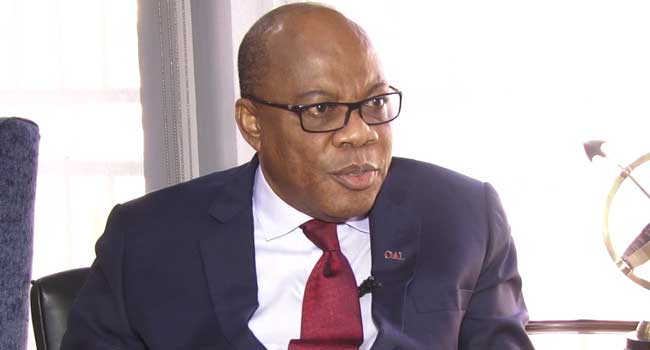A senior Advocate of Nigeria (SAN), Olisa Agbakoba, is seeking the clarification of Independent National Electoral Commission (INEC) on Section 134 of the Nigeria Constitution.
In a letter dated January 17, Agbakoba questioned the clarity of Section 134 of the 1999 Constitution, which provides requirements to be met by a candidate seeking the office of Nigeria’s president.
“The Constitution describes the winner in two different languages. One, the winner must score the majority of votes. And the other, the winner must score the highest number of votes. This is confusing,” he said.
Also, Chief Wole Olanipekun (SAN) described Section 65 of the Electoral Act, which empowers a Chief Returning Officer of INEC to review his decision after returning a candidate, as a booby trap against the conduct of a free and fair election.
Agbakoba noted that the Section reads: “A candidate for an election to the office of president shall be deemed to have been duly elected, where, there being only two candidates for the election, he has the majority of votes cast at the election;
And “he has not less than one-quarter of the votes cast at the election in each of at least two-thirds of all the states in the federation and the Federal Capital Territory (FCT), Abuja;
“A candidate for an election to the office of President shall be deemed to have been duly elected where, there being more than two candidates for the election, he has the highest number of votes cast at the election;
And “he has not less than one-quarter of the votes cast at the election in each of at least two-thirds of all the states in the federation and the FCT, Abuja.”
The lawyer said, having reviewed the Section carefully, specifically, Sub-sections 134 (1) (b) and (2) (b), he wondered if “two-thirds of all the states in the federation and the FCT, Abuja” means:
“That a presidential candidate must score not less than one-quarter of the votes cast at the election in each of at least two-thirds of all the states in the federation, which means 24 states, the 24 states will include the FCT as a “state” or;
“That a presidential candidate must score not less than one-quarter of the votes cast at the election in each of at least two-thirds of all the states in the federation, which means 24 states, and in addition to meeting the one-quarter requirement in 24 states, a candidate must also win one-quarter of the votes cast in the FCT.
“In this sense, a presidential candidate must have one-quarter of the votes cast in the FCT, in addition to scoring not less than one-quarter of the votes cast at the election in 24 states of the federation, to be duly elected.”
Agbakoba added: “Finally, Section 134(1)(a) provides that a candidate for an election to the office of president shall be deemed to have been duly elected, where, there being only two candidates for the election, the candidate has the majority of votes cast at the election.
“But Section 134(2) provides that a candidate for an election to the office of president shall be deemed to have been duly elected where, there being more than two candidates for the election, the candidate has the highest number of votes cast at the election.
“The Constitution describes the winner in two different languages. One, the winner must score the majority of votes. And the other, the winner must score the highest number of votes. This is confusing.”

Olanipekun raised the alarm over Section 65, yesterday, when he paid a courtesy visit to Governor Biodun Oyebanji, in Ado-Ekiti, saying by “that Section of the Electoral Act, you are giving a Returning Officer and, by extension INEC, the power to do and undo.”
He said he was not aware of any similar Section in any of the previous Electoral Acts or any similar Section in any of the Electoral Acts of any country in the world.
“When you invest in a Returning Officer of INEC the power to do and undo; the power to return and review his decision, this is dangerous to the polity.
“The Chief Returning Officer is the Chairman of INEC, meaning you can return someone as president today, and tomorrow, when there are agitations here and there, he may withdraw his decision, saying, ‘I am revising myself and I am now returning somebody else’.”
Olanipekun said he was surprised that the National Assembly had allowed the Section to creep into the Electoral Act.
He added that National Assembly members could still remove the provision, even as he called on all stakeholders, particularly political parties, to “shine their eyes” and monitor INEC and Returning Officers, so that nothing untoward happens.

